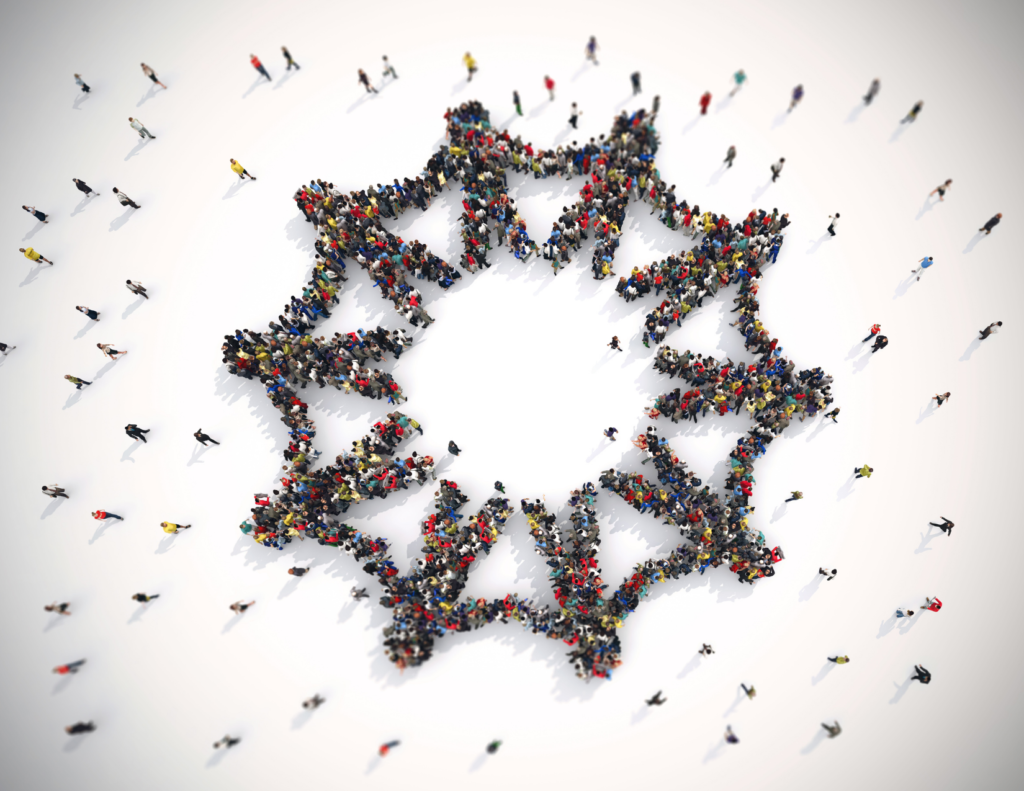What is intersectionality and why does it matter?

Using an intersectionality framework is a skill that anyone can develop, and a lens we can all look through as we interpret our experiences and how we interact with and understand others.

Using an intersectionality framework is a skill that anyone can develop, and a lens we can all look through as we interpret our experiences and how we interact with and understand others.
To view this post, you must purchase a paid-subscriber plan—learn more here.
Already have an account? log in here!
Empathy makes you a better leader. In general, women are perceived to be the most “empathetic” gender, and the science says there may be some truth to that perception. One study found that women are better at feeling others’ pain; female brains react more to images or videos of a person being in pain than male brains. It turns out that high empathy is a very positive thing for women in the workplace, especially if they’re in leadership positions. A recent report by Catalyst found that, especially in the post-pandemic workplace, empathy is a critical leadership skill that influences important factors like innovation and employee satisfaction. There’s no doubt about it: empathy is a necessary skill to have as a leader. Here are 3 benefits…
To view this post, you must purchase a paid-subscriber plan—learn more here.
Already have an account? log in here!
Intersectionality is a term that describes the overlapping inequalities many of us face as women, as people of color, as older adults, as members of the LGBTQ+ community, as those who are differently abled. The lived experience of a Black woman, for example, is different than that of a Caucasian woman or a Black man. And the experience of a Black woman over 65 is different yet again – she faces an additional “layer” of inequality. Read more: What is intersectionality and why is it important? Intersectionality considers each of us as having a combination of social identities that impact the opportunities available to us, the power we hold, and the discrimination and oppression we may face. Most people probably don’t think of intersectionality in…
To view this post, you must purchase a paid-subscriber plan—learn more here.
Already have an account? log in here!
By Gina Messina, Ph.D. About a year ago, a friend introduced me to Kakeibo, the Japanese art of budgeting and applying mindfulness to our spending, and I’ve been obsessed ever since. You see, I am a major contributor to our consumeristic culture. I see something shiny and I think I have to have it. A friend jokes that she hates going shopping with me because I have to pick up and touch everything on the shelves (although I’ve eliminated that practice due to COVID!). Like so many of us, I am easily persuaded by marketing tactics. Now that we so rarely spend cash, it feels like I can simply swipe a card, click a button, or use my fingerprint and suddenly I have a new…
To view this post, you must purchase a paid-subscriber plan—learn more here.
Already have an account? log in here!
Our mental performance, how we think, analyze, and perceive the world, influences how we work, tackle challenges, relate to others, manage stress and more. Where we choose to put our focus has a tremendous impact on how we feel and perform in our day-to-day lives. Julie Jones, Mental Performance Coach and Institute instructor, specializes in helping people boost their mental game, and in teaching them how mental training, positivity and self-awareness can help us do better in our jobs, our personal lives, as leaders, as athletes, and as members of the community. As a former Division I softball coach, Julie specializes in training athletes in mental performance techniques. The same brain strategies that can help a softball player improve her swing can help us all…
To view this post, you must purchase a paid-subscriber plan—learn more here.
Already have an account? log in here!
It might not be obvious to any of us on a day to day basis, but the world has radically shifted in the last 50 years. We’re watching as understood norms and structures are collapsing right before our eyes – either through corruption or a mass awakening or both. Is college really the best way to get a higher education?Is the American dream of buying a home with two kids and a white picket fence really sustainable?Do the police actually protect us or are they a part of the problem we see today?Is Democracy stable against tyranny and uprising?Do we really need banks and intermediaries or can we democratize and digitize money?Why do we think staying in the same career for 30+ years is the…
To view this post, you must purchase a paid-subscriber plan—learn more here.
Already have an account? log in here!
© 2024 Institute for Women, Wellness & Work. All rights Reserved.
